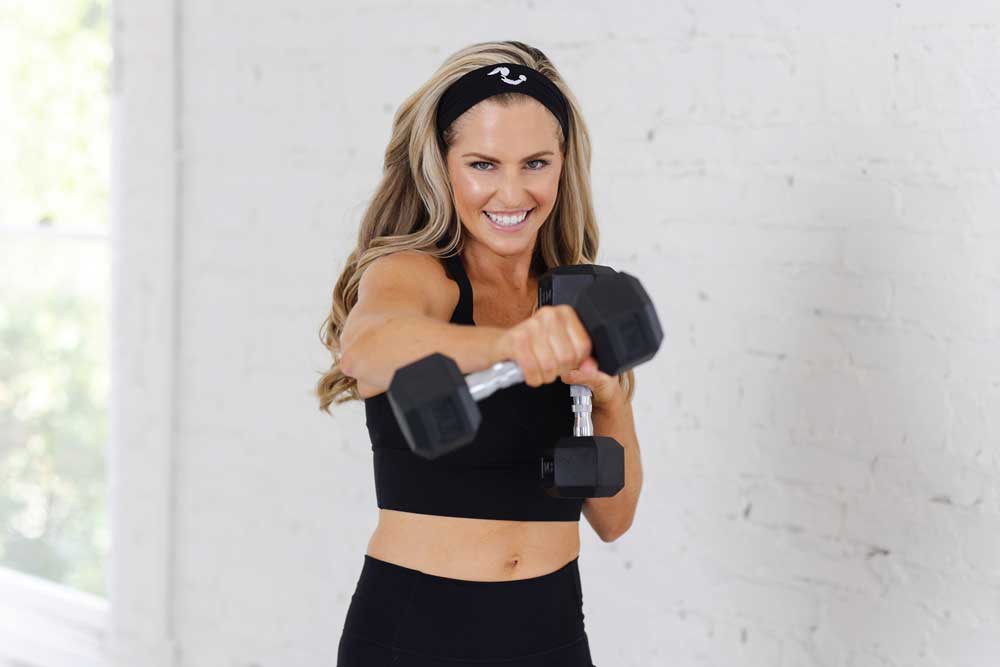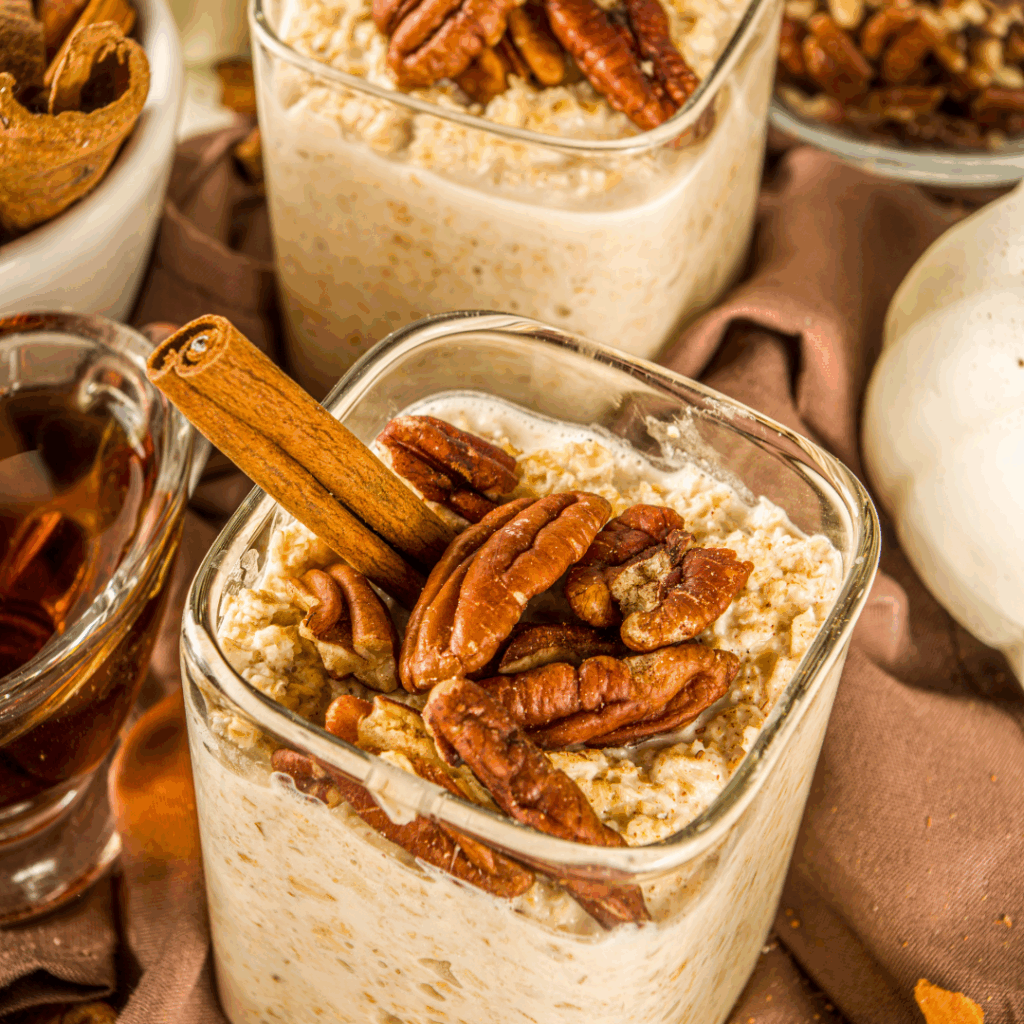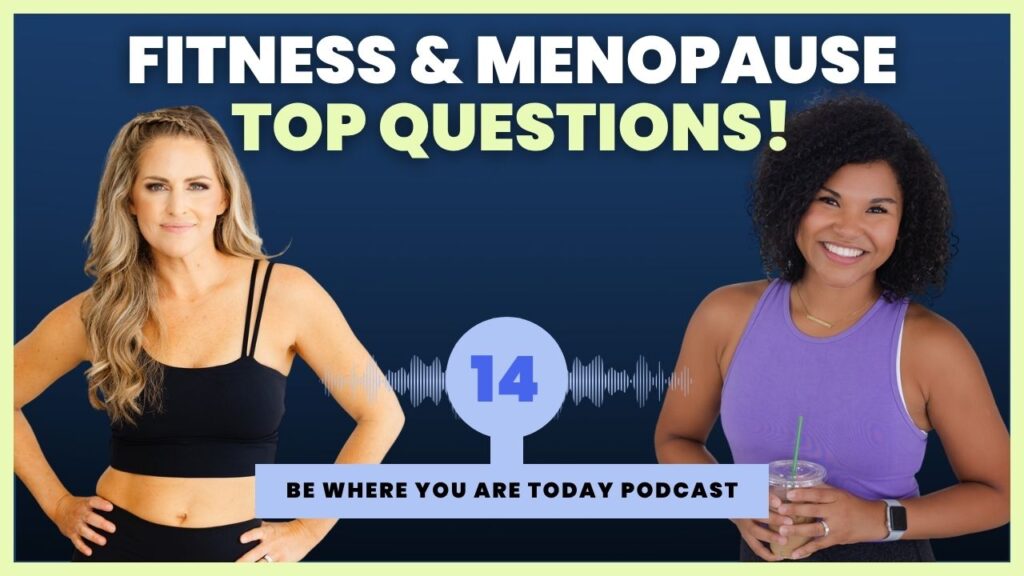As we age, our nutritional needs change. A diet that worked well for you in your 20s may be less appropriate for your 50s or 60s. Watch this video as we explore some general guidelines for how your diet should change as you move through different stages of life.
Your 20s
In your 20s, it’s essential to establish healthy eating habits that will carry you through the rest of your life. Remember, it’s easier to create and maintain habits when we implement them in our younger years rather than later when many of us are pretty set in our ways and routines. Here are a few tips:
Make sure you’re getting enough protein to support muscle growth and repair.
For anyone in their 20s who is moderately active, the recommendation is to consume around 1 gram of protein per kg of body weight. This means that if you weigh 150 pounds, you’d want to consume about 70 grams of protein.
Focus on whole and nutrient-dense foods.
I have met too many 20-somethings who have lived on takeout, cereal, ramen noodles, sugary energy drinks, and beer. While it may seem that our bodies can handle anything and bounce back in our 20s, these habits can catch up to us later in life. Staying healthy in your 20s is strongly associated with a lower risk for heart disease in middle age. Research from Northwestern University showed that most people who adopted these four healthy habits in their 20s stayed healthy well into middle age. Here they are:
-
- Maintaining a lean body mass index
- AKA exercise and strength training
- Moderate alcohol consumption
- No smoking of any kind
- While many young people view marijuana with a gentler lens than cigarettes, marijuana smoke also delivers many of the same substances researchers have found in tobacco smoke. And, yes, these substances are harmful to the lungs and cardiovascular system.
- A balanced and nutritious diet is essential.
- What is a balanced diet? Method (!!!)
- Maintaining a lean body mass index
Other things to keep in mind in your 20s:
- Added sugars (!!!)
- Starbucks, energy drinks, and sodas are typical in this life stage.
- No need to eliminate, but reduce consumption if high.
- Starbucks, energy drinks, and sodas are typical in this life stage.
- Experiment with different types of fruits and vegetables to find what you enjoy — REMEMBER!! This is the time to set those habits in stone!
Ultimately, these habits are things that we can all benefit from, regardless of age, but as we move on to future decades, there are some things to keep in mind.
Welcome to Your 30s
While 30 may be the new 20, many people begin paying attention to their nutrition at this stage. In your 30s, your metabolism may start to slow down, making it easier to gain weight. Here are a few dietary changes to consider:
Increase your intake of protein to maintain muscle mass.
- For anyone in their 30s who is moderately active, I recommend consuming 1 – 1.2 grams of protein per kg of body weight.
- That’s the equivalent of 68 – 81 grams of protein if you weigh 150 pounds.
- This is a general estimate, and your needs may be even higher depending on your lifestyle and physical activity levels.
Focus on Omega-3 fatty acids.
Telomeres are specific DNA–protein structures that play a central role in cell fate and aging. As we enter our 30s, our telomeres get shorter. If our telomeres are shorter, our cells can’t do their jobs properly, causing them to age. Bummer! Is there anything you can do about that? Yes! Eating foods high in Omega-3 fatty acids, such as fatty fish, can slow the pace of aging by preventing the shortening of telomeres. In addition to that, omega 3s can play an essential role in mood regulation. Progesterone begins to decrease as early as your early 30s, and one of the most documented benefits of this hormone is calming your nervous system, making it easier to cope with stress. So, if this hormone is decreasing, aim for foods high in omega-3 fatty acids to support mood and brain health.
What are those foods? Salmon, mackerel, tuna, herring, and sardines. Nuts and seeds like flaxseed, chia seeds, and walnuts are also great. Plant oils such as flaxseed oil is an excellent source of omega-3s.
Stop Fad Dieting
Fad dieting and its associated weight cycling have long-term detrimental heart health effects, including increased risk of diabetes, heart disease, and depression. In addition, people who yo-yo diet their whole lives tend to weigh more due to the constant metabolic damage from extreme restriction and binging.
Focus on complex carbs like whole grains and vegetables, which provide sustained energy.
No specific recommendation here, as all of us, at any age, should be focusing on this.
Ensure you get enough calcium and vitamin D to maintain bone health.
Bone density is formed in our younger years, and new bone formation is completed by age 25-30. Your 30s and beyond are the time to focus on preserving bone density by getting enough calcium in your diet. While everyone knows of dairy products as good calcium options, some non-dairy options include:
- Fortified plant-based milk or fortified orange juice
- Winter squash
- Edamame
- Tofu: made with calcium sulfate.
- Canned sardines, salmon (with bones)
- Almonds.
Your 40s
In your 40s, hormonal changes may cause your body to store more fat, and bone density becomes compromised. Here are some dietary changes that can help:
Make sure you’re getting enough protein to support muscle growth and repair.
-
-
- For anyone in their 40s who is moderately active, the recommendation is to consume around 1.2 – 1.5 grams of protein per kg of body weight.
-
Cut back on sugar and refined carbs to reduce inflammation and insulin resistance.
-
-
- Our bodies are a little less forgiving in our 40s, so you gotta pay closer attention.
- Focus on quality and quantity when it comes to carbs
-
Make sure you’re getting enough fiber to support digestive health.
-
- Digestive issues tend to arise in our 40s – constipation, acid reflux, heartburn, slower digestion, etc.
- Fiber and water may help keep things smooth and decrease the likelihood of colon cancer.
Calcium and Vitamin D – Prioritize
-
- As estrogen production decreases in aging women (becomes more prominent in your 40s), it becomes harder to absorb calcium.
- Vitamin D helps your body absorb calcium.
- Make sure you focus on calcium-rich foods AND vitamin-D consumption/exposure.
Daily calorie requirements decrease by about one percent per decade. To prevent slow, steady weight gain throughout these later decades, you may want to reduce your calorie intake by about 100 calories daily.
Your 50s and Beyond:
In your 50s, your metabolism slows down even more, and you may start to experience age-related health issues. Here are some dietary changes to consider:
Focus on getting enough protein to support muscle mass and prevent muscle loss.
At this point, you may be looking at 1.3 to 1.5 grams per kg of body weight.
-
- When working with clients, I always pick 1.4 as a starting point.
Watch your sodium intake to protect your heart and kidneys and increase potassium.
-
-
- Sodium less than 2300 mg per day (if you have high blood pressure, less than 1500 mg per day)
- Potassium-rich foods: beans, lentils, potatoes, winter squash, avocadoes, spinach, broccoli, bananas, cantaloupe
- From AHA: Foods with potassium can help control blood pressure by blunting the effects of sodium. The more potassium you eat, the more sodium you process out of the body. It also helps relax blood vessel walls, which helps lower blood pressure.
-
Make sure you’re getting enough vitamin B12, which can become more difficult to absorb with age.
-
-
-
-
- Animal-product/meat eaters: likely okay
- Non-animal/meat eaters: a supplement (ask your doctor) and/or nutritional yeast.
-
-
-
Vitamin K – Nobody talks about this!
-
- Studies have shown poor Vitamin K intake is linked to low bone mass, osteoporosis, and fracture risk.
- Vitamin K activates proteins involved in bone formation and mineralization (a process that makes bones strong)
- Sources: The most common foods with high vitamin K are green leafy vegetables such as kale, collard greens, broccoli, Brussels sprouts, spinach, cabbage, and lettuce.
Vitamin D & Calcium (&Vitamin K) for Bone Health
-
- Critical every decade (!!)
As you can see, our dietary needs change as we age. Following these general guidelines can support your health and well-being throughout your life. Of course, everyone’s nutritional needs are different, so it’s always a good idea to talk to a healthcare professional before making significant changes to your diet.











